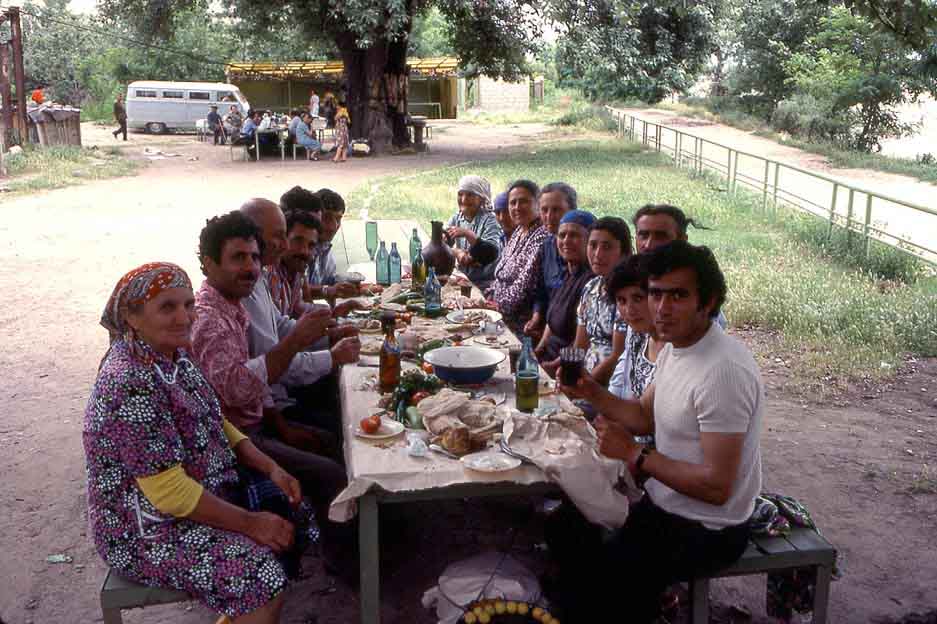For most college students, it’s hard to imagine a world where you can’t get in the car and drive to Mom and Dad’s house for Spring Break or the occasional weekend at home. Traveling to see family plays a huge part in most Americans’ lives, whether it’s heading home for the holidays or flying to the grandparents’ house for Thanksgiving with the drunk uncles and batty old aunts.
In the United States, having a far-flung extended family is not only common, but expected.
For Georgians, however, families are not divided by choice but by political conditions, and these same political conditions keep them apart.
Georgia, a former Soviet state, is divided up into several different political regions, two of which, Abkhazia and Tskhinvali (or South Ossetia), are officially autonomous, according to the government of Georgia's official website. Conflicts left over from the Cold War resulted in the displacement of Georgians from both these regions. In Abkhazia in particular, anywhere from 160,000 to 247,000 Georgians had been displaced from their home, the ethnic Georgian region of Gali, according to Caucaz’ “Portrait of Displaced Georgians: Current Situation and Prospects.”
Georgians who do return to Abkhaz face several challenges there. These ethnic Georgians in the Abkhaz region are seen as outsiders by Abkhazians, and traitors to Georgia by their fellow Georgians. They also have difficulty obtaining Abkhaz ID documents because they are not ethnic Abkhaz.
More pertinent to the family issue, however, is the division of families over the Abkhaz border, or ABL, according to the article “Georgians in Gali,” by the Georgian Daily. Abkhaz, in the northernmost region of Georgia, is close to Russia, and many of the Abkhaz schools teach in Russian. Georgian families who want their children to learn in their native tongue often take their children across the ABL to schools in Zugdidi, a neighboring Georgian region. Most Georgians who go on to higher education after high school also leave their families and the Abkhaz region to attend universities in southern Georgia.
Crossing the border is not always an easy task, however. Prior to the Georgia-Russia war in 2008, there were four official crossing points for Georgians wishing to leave Abkhaz. Today, however, there is only one, and it is necessary to obtain a permit in order to leave or enter the region.
Unlike the United States, where traveling to visit relatives or going home can be a treat, for displaced Georgians, just being close to family or familiar culture is often a struggle. The prospect of going home to see the parents is not an occasional delight for Georgian college students but an ordeal and a political struggle with the local authorities.
A map from UNESCO's website shows Abkhaz is the north-western region of Georgia, abutting the Russian Federation.


No comments:
Post a Comment